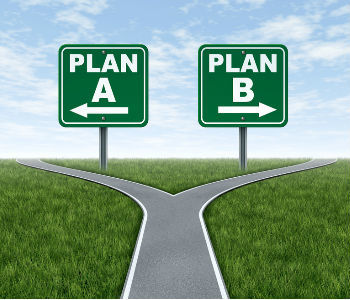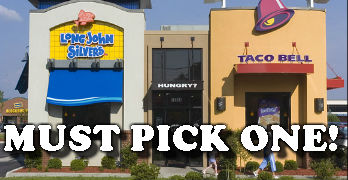
After seeing Democracy Chronicles’ excellent kickstarter trailer for Design of a Broken System, and hearing John Amaruso’s smart ‘plea’ for electoral reform as the #1 overarching issue that will engender all the other major issues we face, I couldn’t help but come up with the following simple example (below) to provoke a thoughtful discussion on voting-method reform.
Thanks …and good luck with the documentary!
——————————————————
Let’s play: “What’s the best voting method?”
Instructions: Please answer the simple Question #1 before tackling the difficult Question #2
Question #1:
Three friends want to select one of thirty nearby restaurants that will most likely provide them with the greatest overall satisfaction as a group. What voting method should they use?
Question #2:
Three-hundred million people want to select one of thirty candidates who will most likely provide them with the greatest overall satisfaction as a collective group (the very essence of “democracy”). What voting method should they use?
Conundrum?:
If your answer to Question #2 is different from your answer to Question #1, please explain at what point (the precise # of voters in the electorate) that you changed your voting method, and changed it to what method, and WHY?

ANSWER BELOW…
Adrian Tawfik says
Question 1: I think with three people, consensus is the best option and no one should be totally against the decision.
Question 2: I really am not an expert here but from what I have learned in last few years, there are supporters of different methods all of whom are convinced they are correct. Clearly the quest for “the best voting method” continues. Its seems most of these people agree that plurality is the worst system though.
Conundrum: Small groups have a better chance at pleasing everyone but not 100% of the time. Often even a married couple can’t pick a good place to eat easily. They can be politically different people and sometimes it would be impossible to come to a consensus agreement. But with large groups and nations where thousands must decide, there will have to be people who disagree with the final decision, especially in controversial topics. Yet clearly a vote is the best way to make a decision in big groups, giving everyone an equal say and making sure that by representing everyone’s view, there is less likely to be decisions made that harm everyone. This is a big plus when compared to non-democracies where a few people can make decisions for thousands – even leading a nation to war without any support from the public.
Richard Fobes says
The words “Three-hundred million people want to select one of thirty candidates” are unclear. If there is no election linkage between the 30 representatives — which is what the question seems to imply — then there is no way to conduct fair elections.